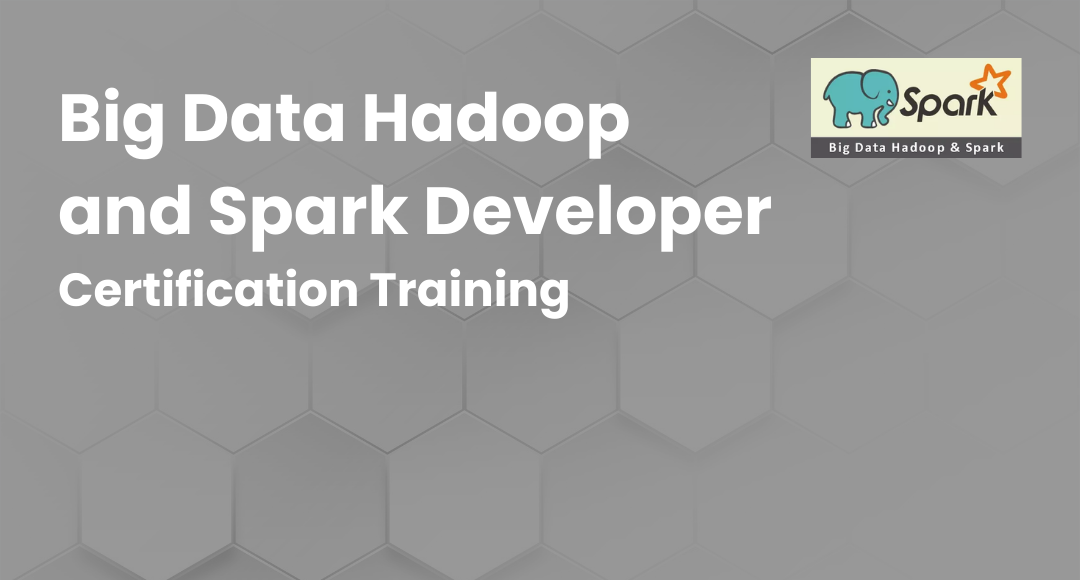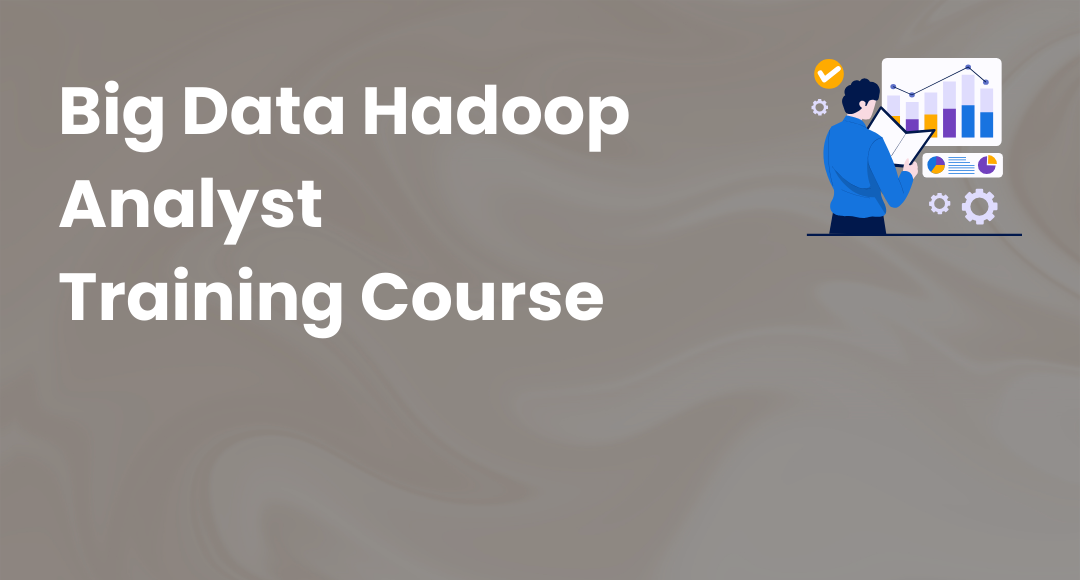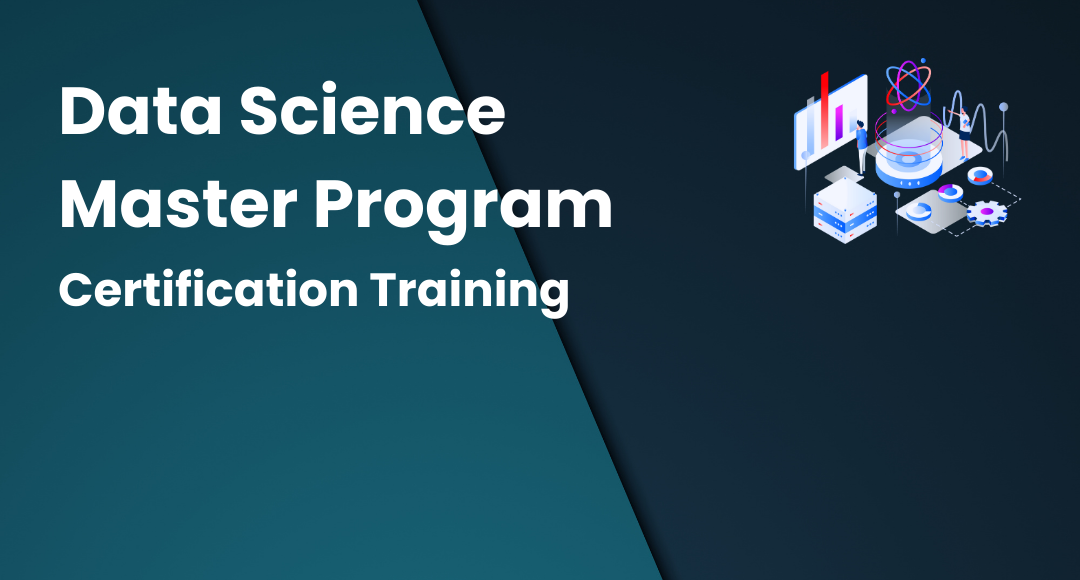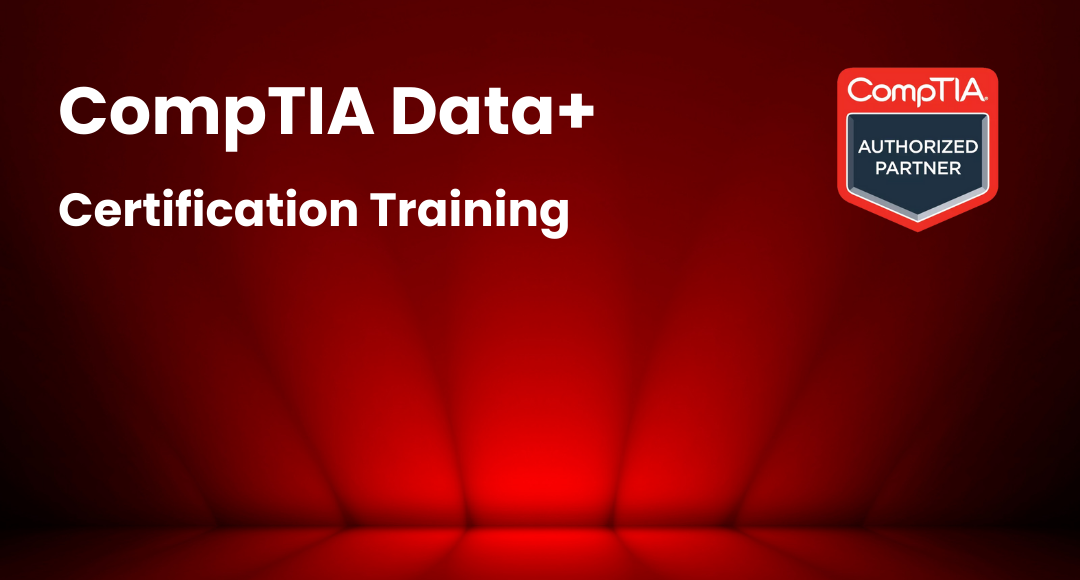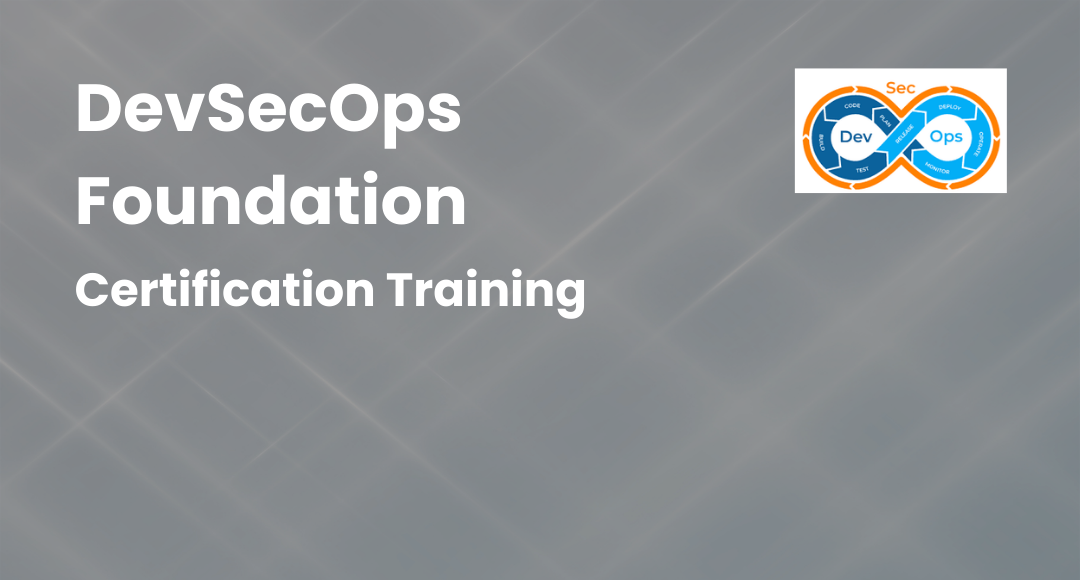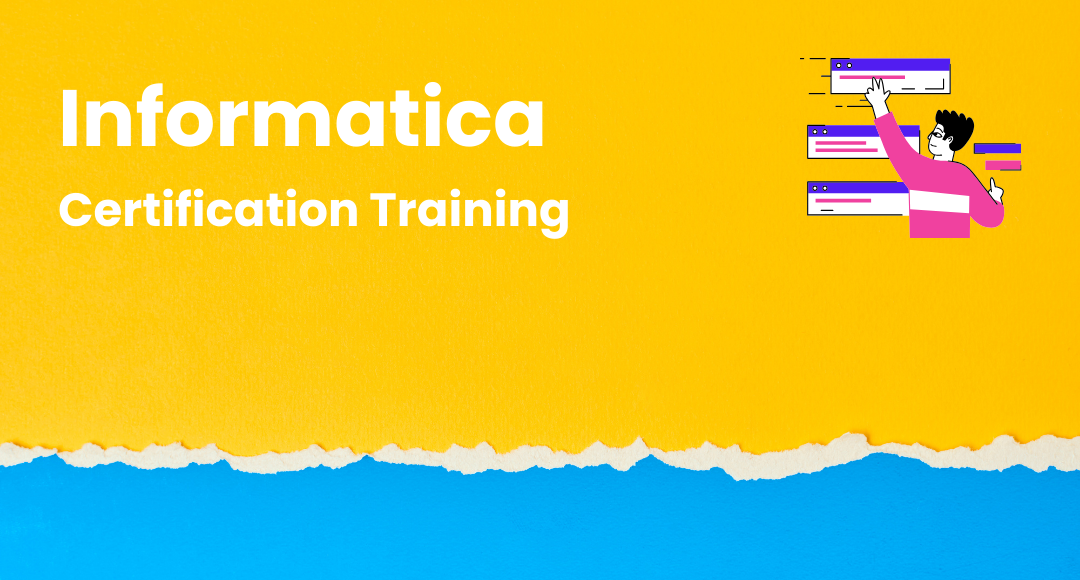Career Paths in Data Analytics: Guide to Advance in Your Career
-
 By Sushmith
By Sushmith - Published on Nov 17 2023

Table of Contents
The Growing Demand for Data Analysts
In the current data-driven world, information is power. Data analysis, the process of scrutinizing raw data to extract valuable insights and make informed decisions, has become a vital source for various industries. Healthcare to finance and technology, the need for skilled data analysts has grown exponentially.
The rapid advancement of technology has generated an unprecedented volume of data. Every action we take online, every transaction we make, and every sensor we deploy generates data. Companies use this data to optimize operations, and enhance customer experiences. However, this flood of data is massive and much unstructured, making it nearly impossible for decision-makers to navigate without the expertise of data analysts.
Data analysis is not confined to a single industry or domain. Instead, it permeates every sector of the global economy. Healthcare institutions rely on data analysts to uncover patterns in patient records, concierge medicine software, improving diagnoses and treatment plans. The potential applications are limitless, making data analysis a versatile and sought-after skillset. As the world becomes increasingly data-centric, the demand for skilled data analysts continues to rise.
Let’s now explore what the world of data analytics has to offers for professionals seeking opportunities for growth in this dynamic field.
Exploring Data Analytics Career Paths
The world of data analytics is filled with opportunities for individuals passionate about harnessing the power of data. As organizations increasingly rely on data to drive their decisions, the demand for skilled professionals in this field has surged. Whether you're just starting your journey or seeking to advance into a new career, making informed decisions and choosing the one that aligns best with your skills and aspirations is essential.
Following is the list of top career paths available in Data Analytics and let’s explore each of its feature and the including Roles and Skills Required.

Overview: Data analysis is the foundational pillar of data analytics. It involves the collection, cleaning, and interpretation of data to help organizations make informed decisions. Data analysts are instrumental in translating data into actionable insights.
Roles and Job Prospects:
- Data Analyst
- Business Analyst
- Marketing Analyst
- Financial Analyst
- Research Analyst
- Data Consultant
- Data Quality Analyst
Job prospects for data analysts are excellent, with a consistent demand for their skills across industries.
Skills Required:
- Data manipulation and cleaning
- Statistical analysis
- Data visualization tools (e.g., Excel, Tableau, Power BI)
- Proficiency in programming (e.g., Python, R)
- Effective communication skills
- Basic knowledge of database management
Responsibilities: Data analysts have several key duties. They gather data from different places, clean and prepare it, use statistical methods to find patterns, and make graphs and reports to explain their findings. They also give advice based on what they discover to help with decision-making.
Education and Certifications: Usually, a bachelor's degree in fields like mathematics, statistics, economics, or computer science is the least you'll need. Lots of data analysts get extra certifications, such as the Certified Data Analyst (CDA) or Google Data Analytics Professional Certificate, to improve their abilities and make themselves more attractive to employers.
Overview: Data science takes data analysis to the next level, using advanced techniques and machine learning to extract predictive insights. Data scientists are instrumental in solving complex problems and making data-driven predictions.
Roles and Job Prospects:
- Data Scientist
- Machine Learning Engineer
- AI Research Scientist
- Predictive Analyst
- Research Scientist
- Computer Vision Engineer
Natural Language Processing (NLP) Specialist
Job prospects are robust, with opportunities for innovation and impact.
Skills Required:
- Advanced programming (Python, R)
- Machine learning algorithms
- Statistical modeling
- Data preprocessing and feature engineering
- Deep learning and neural networks
- Data storytelling and visualization
- Problem-solving and critical thinking
Responsibilities: Data scientists collect and preprocess data, build predictive models, and deploy machine learning algorithms. They work on projects such as recommendation systems, fraud detection, and natural language processing, driving data-driven decision-making.
Education and Certifications: Most data scientists hold a master's or Ph.D. in computer science, data science, or a related field. Certifications like the Microsoft Certified: Azure Data Scientist Associate or Google Cloud Professional Data Engineer can enhance career prospects.
- Business Intelligence Career Path
Overview: Business intelligence (BI) professionals focus on transforming data into actionable insights for strategic decision-making. They play a vital role in helping organizations identify opportunities for growth, optimize operations, and gain a competitive edge.
Roles and Job Prospects:
- BI Analyst
- BI Developer
- Data Analyst
- Reporting Analyst
- Data Visualization Specialist
- Dashboard Developer
- Business Intelligence Manager
Job prospects are strong due to the continuous need for data-driven insights.
Skills Required:
- Data visualization tools (e.g., Tableau, Power BI, QlikView)
- SQL for data extraction
- Data modeling
- Business acumen
- Effective communication skills
- Understanding of data warehousing
Responsibilities: BI professionals collect and analyze data, design and develop interactive dashboards and reports, and collaborate with stakeholders to define business requirements. They help organizations make informed decisions by providing data-driven insights.
Education and Certifications: A bachelor's degree in business, computer science, or a related field is common. BI professionals can enhance their skills and marketability with certifications like the Tableau Desktop Specialist or Microsoft Certified: Power BI.
- Data Engineering Career Path
Overview: Data engineering is the backbone of data analytics, focusing on the architecture, construction, and maintenance of data pipelines and databases. Data engineers ensure data is collected, stored, and processed efficiently for analysis.
Roles and Job Prospects:
- Data Engineer
- Big Data Engineer
- Database Administrator
- Data Warehouse Architect
- ETL Developer
- Cloud Data Engineer
- Streaming Data Engineer
Job prospects are robust due to the growing need for data infrastructure.
Skills Required:
- Data modeling
- ETL (Extract, Transform, Load) processes
- Database management (SQL, NoSQL)
- Programming (e.g., Python, Java)
- System architecture
- Data pipeline construction
- Data quality and security
Responsibilities: Data engineers design and maintain data pipelines, ensure data quality and security, and collaborate with data scientists to provide access to clean, high-quality data.
Education and Certifications: A bachelor's degree in computer science or a related field is mandatory. Certifications like the Google Cloud Professional Data Engineer or AWS Certified Data Analytics can enhance career opportunities.
- Data Specialist Career Path
Overview: Data specialists focus on niche areas within data analytics, often related to specific industries or domains. These roles require a deep understanding of industry-specific data and challenges.
Roles and Job Prospects:
- Healthcare Data Analyst
- Sports Analytics Specialist
- Financial Data Analyst
- Environmental Data Scientist
- Retail Data Analyst
- Energy Sector Data Analyst
- Media Data Specialist
Job prospects vary depending on the chosen specialization but can be rewarding for those with domain expertise.
Skills Required:
- Domain-specific knowledge
- Data analysis skills tailored to the industry
- Understanding of industry-specific data sources
- Regulatory knowledge (if applicable)
- Statistical analysis related to the field
- Data visualization tailored to the industry
Responsibilities: The responsibilities of data specialists vary widely depending on their specialization. They may analyze patient records, sports performance data, financial market trends, or any other domain-specific data to provide valuable insights.
Education and Certifications: The educational requirements and certifications for data specialists depend on the specific industry or domain they choose to specialize in. A combination of relevant industry knowledge and data analytics skills is typically required.
Choosing the Right Industry-Specific Role
As your journey begins in data analytics, one of the key decisions you'll face is deciding which industry or domain you'd like to be specialized in. Data analytics covers every industry with its unique challenges and opportunities. Your choice of industry-specific role can greatly influence your career.

Let’s now explore the methods to selecting the industry-specific data analytics roles, each offering distinct set of challenges and exciting possibilities.
Data Analytics in Healthcare:
The healthcare industry heavily relies on data analytics to improve patient’s care and reduce costs. As a healthcare data analyst, you'll work with patient records, medical billing data, and clinical data to identify treatment outcomes, and support informative decision-making.
This role requires a deep understanding of healthcare regulations, patient privacy, and the ability to work with complex medical data.
Data Analytics in Finance:
Finance is another sector where data analytics is crucial. Financial analysts use data to evaluate investments, assess risk, detect fraud, and make informed financial decisions.
Data Analytics in E-commerce:
E-commerce companies leverage data analytics to enhance the customer shopping experience, optimize pricing, and improve supply chain management. E-commerce data analysts use customer behavior data, transaction records, and web analytics to gain insights into consumer preferences, product recommendations, and sales forecasting.
Data Analytics in Marketing:
Marketing professionals rely on data analysts to measure the effectiveness of campaigns, identify target audiences, and allocate resources efficiently. Marketing data analysts work with customer data, social media metrics, and advertising analytics to provide actionable insights that drive marketing strategies.
Data Analytics in Government:
Government agencies use data analytics to inform policy decisions, improve public services, and address societal challenges. Working as a data analyst in the public sector may involve analyzing census data, crime statistics, or healthcare outcomes to inform government initiatives and public policy.
Data Analytics in Energy:
The energy sector utilizes data analytics to optimize energy production, reduce environmental impact, and enhance energy efficiency. Energy data analysts work with sensor data, energy consumption records, and environmental data to identify opportunities for improvement and sustainability.
Data Analytics in Manufacturing:
In manufacturing, data analytics plays a vital role in quality control, production optimization, and predictive maintenance. Manufacturing data analysts work with sensor data from machinery, production records, and supply chain data to improve processes and reduce downtime.
How to Advance Your Data Analytics Career
Advancing your career in data analytics requires more than just technical expertise; it involves a combination of skills, strategies, and continuous learning. Whether you're just starting or looking to progress further in your chosen field, here are some key steps to help you advance your data analytics career:

Continuous Learning:
The world of data analytics is ever-evolving, with new tools, technologies, and methodologies emerging regularly. Stay up-to-date with industry trends by taking online courses, attending workshops, and earning relevant certifications. Consider pursuing advanced degrees if your career goals warrant it.
Specialize:
As you gain experience, consider specializing in a particular area of data analytics that aligns with your interests and career goals. Specializations can include machine learning, natural language processing, data engineering, or industry-specific expertise.
Build a Strong Portfolio:
Create a portfolio of projects that showcase your skills and problem-solving abilities. Real-world projects can demonstrate your competence to potential employers and clients. Share your portfolio on platforms like GitHub or personal websites.
Networking:
Building a professional network is invaluable. Attend industry conferences, join online forums, and connect with fellow data analysts. Networking can open doors to new opportunities and provide insights from experienced professionals.
Soft Skills:
Data analysts need more than technical skills. Strong communication, critical thinking, and problem-solving skills are essential to convey complex findings to non-technical stakeholders and to approach data challenges creatively.
Certifications:
Earning industry-recognized certifications can boost your credibility and career prospects. Consider certifications such as Certified Data Scientist, AWS Certified Data Analytics, or Google Data Analytics Professional Certificate.
Mistakes to Avoid in Data Analytics Career Planning
Planning your career in data analytics is an exciting and strategic endeavor. However, like any profession, there are common missteps that can hinder your progress. By being aware of these pitfalls and taking proactive steps to avoid them, you can navigate your career path more effectively.
Neglecting Continuous Learning:
- Mistake: Assuming that your initial education and skills are sufficient for your entire career.
- Avoidance Strategy: Stay committed to lifelong learning. Continuously update your skills to keep up with evolving technologies and methodologies.
Focusing Solely on Technical Skills:
- Mistake: Overemphasizing technical skills at the expense of soft skills.
- Avoidance Strategy: Develop a balance between technical and soft skills. Effective communication, problem-solving, and teamwork are equally important.
Ignoring the Importance of Domain Knowledge:
- Mistake: Neglecting to understand the specific industry or domain you work in.
- Avoidance Strategy: Invest time in gaining domain expertise, which is vital for making data-driven decisions relevant to your industry.
Neglecting Networking:
- Mistake: Not building a professional network or failing to engage with peers in your field.
- Avoidance Strategy: Actively participate in data analytics communities, attend conferences, and seek mentorship opportunities to expand your network.
Not Setting Clear Career Goals:
- Mistake: Lacking a clear career plan or specific goals.
- Avoidance Strategy: Set clear, measurable career goals and create a roadmap to achieve them. Regularly review and adjust your plan as needed.
Staying in Your Comfort Zone:
- Mistake: Avoiding challenges and staying in familiar roles.
- Avoidance Strategy: Embrace new challenges and seek opportunities for growth. Stepping out of your comfort zone often leads to career advancement.
Start Your Data Analytics Journey with Sprintzeal
As you start your journey of data analytics, it's essential to equip yourself with the right knowledge and skills to advance. At Sprintzeal, we understand the importance of quality education and professional development in data analytics career planning. Our comprehensive training and certification programs are designed to help you reach your full potential and stand out in the competitive world of data analytics.
Whether you're a beginner looking to enter the field or an experienced professional seeking to up skill, we have the right courses for you:
Big Data Hadoop and Spark Developer Certification:
Become a proficient Big Data Hadoop and Spark Developer with Sprintzeal's certification program. This comprehensive course equips you with the skills to handle massive datasets, develop data processing applications, and harness the power of Apache Hadoop and Apache Spark.
Big Data Hadoop Analyst Certification:
Dive into the world of big data analytics with Sprintzeal's Big Data Hadoop Analyst Certification. Learn to analyze large datasets, extract valuable insights, and make data-driven decisions. This course is tailored for those looking to specialize in data analytics within the Hadoop ecosystem, providing you with the skills needed to excel in this rapidly growing field.
Elevate your data science expertise with our Data Science Master Program. This comprehensive program covers a wide range of topics, including data analysis, machine learning, statistical modeling, and data visualization.
Sprintzeal's CompTIA Data+ Certification is the gateway to a rewarding career in data management and analytics. This certification validates your proficiency in data quality, data governance, and data security, making you a valuable asset in organizations looking to manage and protect their data assets.
FAQs
What are the typical roles for a Data Analyst?
Data analysts can pursue roles such as Business Analyst, Financial Analyst, Marketing Analyst, or Research Analyst, depending on their area of specialization and industry.
How do I start a career in Data Analytics with no prior experience?
To start a career in data analytics with no prior experience, consider enrolling in introductory data analytics courses, building a portfolio of personal projects, and networking with professionals in the field to gain practical knowledge and connections.
What certifications are beneficial for Data Analysts?
Certifications like Certified Data Analyst (CDA), Microsoft Certified: Data Analyst Associate, or Google Data Analytics Professional Certificate can enhance the credentials of data analysts and improve career prospects.
How can I advance my career from a Data Analyst to a Data Scientist?
To transition from a Data Analyst to a Data Scientist, you can acquire additional skills in machine learning, statistical modeling, and deep learning, along with gaining experience working on complex data science projects.
What industries have the highest demand for Financial Data Analysts?
Financial Data Analysts are in high demand in industries such as finance, banking, investment, insurance, and fintech, where they play a crucial role in financial analysis, risk assessment, and decision-making processes.
Summary
In the ever-evolving world of data analytics, we've explored the incredible array of career paths available to aspiring data professionals. From data analysis and data science to business intelligence, data engineering, and specialized roles in diverse industries, the opportunities are boundless.
By understanding the nuances of each path, you can embark on a journey that aligns with your interests and goals. Whether it's uncovering insights from healthcare data, making data-driven financial decisions, or optimizing e-commerce strategies, data analytics offers a world of possibilities.
When it comes to equipping yourself with the skills and knowledge needed for success in data analytics, look no further than Sprintzeal. Their comprehensive range of courses, designed by industry experts, covers a wide spectrum of data analytics and big data topics.
From Data Analysis to Data Science, Business Intelligence to Data Engineering, and specialized industry-focused courses, Sprintzeal offers the tools you need to excel in your chosen career path.
With expert instructors, flexible learning options, and a commitment to helping you reach your potential, Sprintzeal is your partner on your data analytics journey.
Visit Sprintzeal's all courses page to explore the full range of data analytics and big data courses designed to empower you with the skills and knowledge needed for a successful and rewarding career in data analytics.
Make sure you are subscribed to our newsletter to stay informed about the latest informative resources, industry insights, and special offers on our data analytics and big data courses. Don't miss out on valuable opportunities to enhance your career. Subscribe today and stay ahead in the world of data analytics!
Subscribe to our Newsletters
Popular Programs
Trending Posts
Top Hadoop Interview Questions and Answers 2026 (UPDATED)
Last updated on Nov 24 2022
Big Data Certifications in 2026
Last updated on Mar 28 2024
Data Science vs Data Analytics vs Big Data
Last updated on Jul 5 2023
Data Visualization - Top Benefits and Tools
Last updated on Mar 27 2024
Data Analysis guide
Last updated on Aug 23 2022
What is Big Data Analytics? - A Beginner's Guide
Last updated on Dec 28 2022
Categories
- Other 72
- Agile Management 48
- Cloud Computing 57
- Project Management 174
- Big Data 67
- Business Management 88
- Digital Marketing 81
- IT Service Management 29
- Programming Language 59
- AI and Machine Learning 85
- IT Security 113
- Quality Management 78
- IT Hardware and Networking 26
- Microsoft Program 5
- Workplace Skill Building 14
- Risk Management 9
- Information Security 8
- Leadership and Management 9
- Corporate Training and Development 1
Trending Now
Big Data Uses Explained with Examples
ArticleData Visualization - Top Benefits and Tools
ArticleWhat is Big Data – Types, Trends and Future Explained
ArticleData Science vs Data Analytics vs Big Data
ArticleBig Data Guide – Explaining all Aspects 2026 (Update)
ArticleData Science Guide 2026
ArticleData Science Interview Questions and Answers 2026 (UPDATED)
ArticlePower BI Interview Questions and Answers (UPDATED)
ArticleData Analyst Interview Questions and Answers 2026
ArticleApache Spark Interview Questions and Answers 2026
ArticleTop Hadoop Interview Questions and Answers 2026 (UPDATED)
ArticleTop DevOps Interview Questions and Answers 2026
ArticleTop Selenium Interview Questions and Answers 2026
ArticleWhy Choose Data Science for Career
ArticleDevOps Engineer Interview Questions - Best of 2026
ArticleSAS Interview Questions and Answers in 2026
ArticleDevOps Engineer - Career path, Job scope, and Certifications
ArticleHow to Become a Data Scientist - 2026 Guide
ArticleHow to Become a Data Analyst
ArticleBig Data Project Ideas Guide 2026
ArticleWhat Is Data Encryption - Types, Algorithms, Techniques & Methods
ArticleHow to Find the Length of List in Python?
ArticleHadoop Framework Guide
ArticleWhat is Hadoop – Understanding the Framework, Modules, Ecosystem, and Uses
ArticleBig Data Certifications in 2026
ArticleHadoop Architecture Guide 101
ArticleData Collection Methods Explained
ArticleData Collection Tools - Top List of Cutting-Edge Tools for Data Excellence
ArticleWhat is DevSecOps and its Importance
ArticleTop 10 Big Data Analytics Tools 2026
ArticleKafka vs Spark - Comparison Guide
ArticleDevOps Career Guide 2026
ArticleData Processing - A Beginner's Guide
ArticleData Structures Interview Questions
ArticleData Analysis guide
ArticleData Integration Tools and their Types in 2026
ArticleWhat is Data Integration? - A Beginner's Guide
ArticleData Analysis Tools and Trends for 2026
ebookA Brief Guide to Python data structures
ArticleWhat Is Splunk? A Brief Guide To Understanding Splunk For Beginners
ArticleBig Data Engineer Salary and Job Trends in 2026
ArticleWhat is Big Data Analytics? - A Beginner's Guide
ArticleData Analyst vs Data Scientist - Key Differences
ArticleTop DBMS Interview Questions and Answers
ArticleTop Database Interview Questions and Answers
ArticlePower BI Career Opportunities in 2026 - Explore Trending Career Options
ArticleCareer Opportunities in Data Science: Explore Top Career Options in 2026
ArticleCareer Path for Data Analyst Explained
ArticleA Comprehensive Guide to Thriving Career Paths for Data Scientists
ArticleWhat is Data Visualization? A Comprehensive Guide
ArticleData Visualization Strategy and its Importance
ArticleTop 10 Best Data Science Frameworks: For Organizations
ArticleData Science Frameworks: A Complete Guide
ArticleFundamentals of Data Visualization Explained
Article15 Best Python Frameworks for Data Science in 2026
ArticleTop 10 Data Visualization Tips for Clear Communication
ArticleHow to Create Data Visualizations in Excel: A Brief Guide
ebookHow to repair a crashed MySQL table?
ArticleTop PySpark Interview Questions and Answers for 2026
Article5 Popular Data Science Careers That Are in Demand
ArticleTop Data Warehouse Interview Questions to Crack in 2026
ArticleData Modeling Interview Questions and Answers 2026
ArticleWhat Is a Data Scientist? Salary, Skills, and How to Become One
ArticleTop Companies Hiring for Data Science: Explore Data Scientist Jobs
ArticleWhat Is a Data Science Course? How to Get Into Data Science From Non-Tech Background
ArticleGeneralized Linear Models: Understanding GLMs and Their Applications
Article
